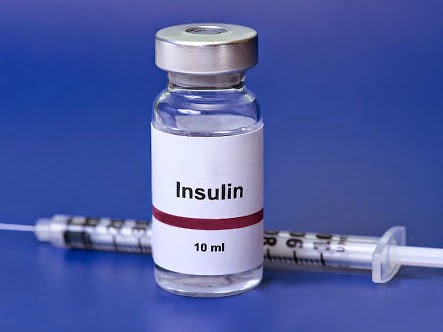Diabetes mellitus, describes a group of metabolic diseases in which the person has high blood glucose (blood sugar).
It is either because insulin production is inadequate,or because the body’s cells do not respond properly to insulin,or both. Patients with high blood sugar will typically experience polyuria (frequent urination), they will become increasingly thirsty (polydipsia) and hungry (polyphagia).
Diabetes has become a very popular disease in Nigeria. We are glad to be of great help in any way we can, giving you information you need. Also we can provide you with home care nursing service for diabetic patient in Nigeria.
There are three types of diabetes:
1) Type 1 Diabetes
The body does not produce insulin. Some people may refer to this type as insulin-dependent diabetes, juvenile diabetes, or early-onset diabetes. People usually develop type 1 diabetes before their 40th year, often in early adulthood by or teenage years.
Patients with type 1 diabetes will need to take insulin injections for the rest of their life.
2) Type 2 Diabetes
The body does not produce enough insulin, or the cells in the body do not react to insulin (insulin resistance).
Some people may be able to control their type 2 diabetes symptoms by losing weight, following a healthy diet They can also do plenty of exercise, and monitoring their blood glucose levels. However, type 2 diabetes is typically a progressive disease. It gradually gets worse and the patient will probably end up having to take insulin, usually in tablet form.
Overweight people have a much higher risk of developing type 2 diabetes compared to those with a healthy body weight. People with a lot of visceral fat, also known as central obesity, belly fat, or abdominal obesity, are especially at risk. Being overweight/obese causes the body to release chemicals that can destabilize the body’s cardiovascular and metabolic systems.
3) Gestational Diabetes
This type affects females during pregnancy. Some women have very high levels of glucose in their blood, and their bodies are unable to produce enough insulin to transport all of the glucose into their cells, resulting in progressively rising levels of glucose.
Diagnosis of gestational diabetes is made during pregnancy.

Complications linked to badly controlled diabetes:
Eye complications – glaucoma, cataracts, diabetic retinopathy, and some others.
Foot complications – neuropathy, ulcers, and sometimes gangrene which may require that the foot be amputated.
Skin complications – people with diabetes are more susceptible to skin infections and skin disorders.
Heart problems – such as ischemic heart disease, when the blood supply to the heart muscle is diminished.
Hypertension – common in people with diabetes, which can raise the risk of kidney disease, eye problems, heart attack and stroke.
Mental health – uncontrolled diabetes raises the risk of suffering from depression, anxiety and some other mental disorders.
Hearing loss – diabetes patients have a higher risk of developing hearing problems.
Gum disease – there is a much higher prevalence of gum disease among diabetes patients.
Gastroparesis – the muscles of the stomach stop working properly.
Ketoacidosis – a combination of ketosis and acidosis; accumulation of ketone bodies and acidity in the blood.
Neuropathy – diabetic neuropathy is a type of nerve damage which can lead to several different problems.
HHNS (Hyperosmolar Hyperglycemic Nonketotic Syndrome) – blood glucose levels shoot up too high, and there are no ketones present in the blood or urine. It is an emergency condition.
Nephropathy – uncontrolled blood pressure can lead to kidney disease.
PAD (peripheral arterial disease) – symptoms may include pain in the leg, tingling and sometimes problems walking properly.
Stroke – if blood pressure, cholesterol levels, and blood glucose levels are not controlled, the risk of stroke increases significantly.
Erectile dysfunction – male impotence.
Infections – people with badly controlled diabetes are much more susceptible to infections.
Healing of wounds – cuts and lesions take much longer to heal.
At Bluegate Homecare, we have knowledgeable and registered care givers who will provide home care nursing service for Diabetic Patients in Nigeria at the comfort of their home.
Administration of insulin, vital signs, and other necessary care.
Contact us @
www.bluegatehomecare.com
bluegateagency@gmail.com
234-706-0851-423 or 234-802-5752-474

